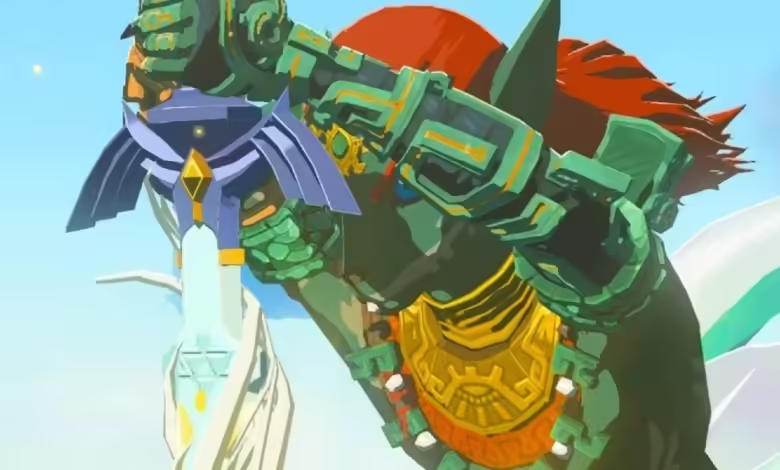Ancient Hero’s Aspect: Unleashing the Power of Timeless Heroism in Everyday Life

In the annals of human history, tales of heroes have always captivated the imagination. From the valiant deeds of Gilgamesh to the epic exploits of Hercules, ancient heroes have left an indelible mark on cultures across the globe. This article embarks on a journey to unravel the multifaceted nature of ancient heroism, delving deep into its origins, characteristics, and enduring influence on society.
Understanding the Concept of Heroism
Heroism, a concept as old as civilization itself, transcends cultural boundaries and time periods. At its core, heroism embodies courage, selflessness, and a willingness to confront adversity for the greater good. Whether in the form of mythological figures, legendary warriors, or historical leaders, heroes have symbolized the highest ideals and aspirations of humanity.
Ancient civilizations revered heroes as exemplars of virtue and strength, often attributing divine lineage or supernatural abilities to them. The archetype of the hero evolved over millennia, reflecting the values and beliefs of each society. From the chivalrous knights of medieval Europe to the noble samurai of feudal Japan, heroism took on diverse expressions across different epochs and cultures.
Origins of Ancient Heroism
The roots of ancient heroism can be traced back to the myths and legends of antiquity. In Mesopotamia, the Epic of Gilgamesh, dating back to the third millennium BCE, tells the story of a legendary king who embarks on a quest for immortality. Gilgamesh’s journey epitomizes the archetypal hero’s quest for self-discovery and enlightenment.
In ancient Greece, heroes like Achilles and Hercules attained mythic status through their exploits recounted in epic poems such as the Iliad and the Odyssey. These heroes embodied the virtues of strength, bravery, and honor, while also grappling with their own flaws and vulnerabilities. Their adventures captured the imagination of generations, serving as moral parables and sources of inspiration for centuries to come.
Characteristics of Ancient Heroes
Ancient heroes possessed a distinctive set of attributes that set them apart from ordinary mortals. Often born of noble lineage or descended from gods, they were endowed with exceptional strength, courage, and charisma. Yet, what truly distinguished them was their unwavering commitment to upholding moral principles and defending the weak and oppressed.
Whether facing fearsome monsters, battling enemy armies, or overcoming personal trials, ancient heroes exemplified the ideals of honor, loyalty, and self-sacrifice. Their actions were guided by a sense of duty and righteousness, inspiring admiration and reverence among their peers and followers. Through their deeds, they earned glory and renown, leaving a lasting legacy that transcended the boundaries of time and space.
Epic Heroes of Antiquity
The epic heroes of antiquity loom large in the annals of mythology and literature, their larger-than-life exploits immortalized in tales passed down through generations. Foremost among them is Gilgamesh, the legendary king of Uruk, whose quest for immortality forms the centerpiece of the Epic of Gilgamesh, one of the oldest surviving works of literature.
In Homer’s Iliad, Achilles, the mightiest warrior of the Greek army, embodies the ideals of heroism and martial prowess. His wrath and grief following the death of his comrade Patroclus serve as a poignant reminder of the human cost of war. Despite his flaws and vulnerabilities, Achilles remains a symbol of valor and honor, revered by both gods and mortals alike.
Similarly, Hercules, the son of Zeus, undertakes a series of heroic labors to atone for his past sins and earn his place among the gods. His feats of strength and courage, including the slaying of the Nemean lion and the Hydra, showcase his indomitable spirit and unwavering determination. Though beset by trials and tribulations, Hercules emerges triumphant, proving himself worthy of divine recognition and immortality.
Heroic Journeys and Quests
The hero’s journey is a recurring motif in ancient mythology and literature, representing the transformative passage from ignorance to enlightenment. Central to this narrative archetype is the hero’s quest, a perilous journey fraught with obstacles and challenges that test their resolve and character.
Heroic Code and Ethics
The heroic code, a set of moral principles and values governing the conduct of heroes, lies at the heart of ancient heroism. Rooted in notions of honor, duty, and loyalty, the heroic code provides a framework for virtuous behavior and ethical decision-making in the face of adversity.
Heroic Women of Antiquity
While ancient heroes are often portrayed as male figures, women also played significant roles in shaping the heroic tradition. From Athena, the goddess of wisdom and warfare, to Cleopatra, the legendary queen of Egypt, heroic women have left their mark on history and mythology alike.
The Influence of Heroes on Culture and Society
The legacy of ancient heroes extends far beyond the confines of myth and legend, permeating every aspect of culture and society. From art and literature to politics and religion, heroes have served as models of behavior and sources of inspiration for countless generations.
Heroic Themes in Art and Literature
The hero’s journey has inspired countless works of art and literature throughout history, serving as a rich source of material for creative expression and interpretation. From epic poems and heroic sagas to paintings and sculptures, artists and writers have sought to capture the essence of heroism in all its glory and complexity.
Heroes in Religion and Mythology
In many religious and mythological traditions, heroes occupy a central place in the pantheon of gods and goddesses, revered for their divine lineage and extraordinary deeds. From the Greek demigods of Olympus to the Hindu avatars of Vishnu, heroes bridge the gap between mortals and immortals, serving as intermediaries between humanity and the divine.
The Hero’s Fall: Tragic Endings and Lessons Learned
While heroes are often celebrated for their triumphs and victories, they are also susceptible to failure and defeat. Tragic heroes, in particular, are characterized by their fatal flaws and the eventual downfall that results from them.
Heroes in Warfare and Leadership
Heroes have long been associated with warfare and leadership, their prowess on the battlefield earning them admiration and respect from allies and adversaries alike. Whether leading armies into battle or rallying troops in times of crisis, heroes inspire courage and instill confidence in those who follow them.
Exploring the Psychology of Heroism
The psychology of heroism is a complex and multifaceted phenomenon that encompasses a range of cognitive, emotional, and motivational factors. From the innate drive for self-preservation to the altruistic desire to help others, heroism reflects the intricate interplay between individual traits and social contexts.
Heroic Iconography and Symbols
Symbols associated with ancient heroes serve as potent reminders of their enduring legacy and cultural significance. From the lion’s mane of Hercules to the shield of Athena, these iconic images evoke a sense of power, strength, and nobility that transcends time and space.
Heroic Legends Across Continents
Heroic legends have flourished in cultures across the globe, reflecting the universal human impulse to celebrate courage, valor, and resilience. Whether in the form of tribal warriors, legendary kings, or divine beings, heroes embody the aspirations and ideals of their respective societies.
Heroes in Folklore and Oral Tradition
In addition to the grand narratives of mythology and literature, heroes also inhabit the realm of folklore and oral tradition, where they take
You read also more
Omni




